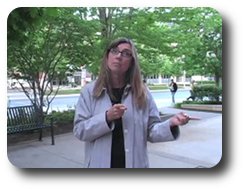Monday 26 October, 7.00pm until 9.00pm, Shortwave Cinema, London
 Venue: Shortwave Cinema, 10 Bermondsey Square, London, SE1 3UN
Venue: Shortwave Cinema, 10 Bermondsey Square, London, SE1 3UN
Tickets: £7.50 (£5 concessions) per person. Tickets are available from the Academy of Ideas website.
Science and technology make popular viewing, even beyond the specialist digital channels that thrive on Brainiac and How it’s Made. The Open University has abandoned beard-ridden late-night lectures for popular programmes like Coast and Electric Dreams. And Tomorrow’s World has finally found a prime time successor in Bang Goes the Theory. But is there enough science mixed in with the entertainment, or does the drive to reach a big audience mean demanding intellectual ideas are relegated to the dark corners of BBC 4?
Doors open 7pm for 7:30pm.
 | Dr Sally Crompton head, Open Broadcast Unit, Open University; commissioner of OU/BBC programmes, including Coast and James May's Big Ideas |
 | Carlo Massarella series producer and director, Windfall Films; Emmy Award-winner, DNA: The Human Race |
 | Andrew Mueller journalist; author, I Wouldn't Start from Here: the 21st century and where it all went wrong |
 | Tony Nixon senior lecturer, Information Systems, Open University; academic consultant, James May's 20th Century |
 | Dr Chris Riley writer, broadcaster and film-maker; MD, The Attic Room; producer, In the Shadow of the Moon and Space Odyssey |
| Chair: | |

|
Timandra Harkness
journalist, writer & broadcaster; presenter, Futureproofing and other BBC Radio 4 programmes; author, Big Data: does size matter? |
Scientists have always had it in for television. They think it’s all arty, arty, arty. Television is Gutenberg all over again. They come up with this marvellous invention, a printing press, and before you can say calculus, it’s running off Bibles and fairy tales.
AA Gill, The Sunday Times, 17 August 2009The Reith Lectures have long been a premier platform for public intellectuals, but are scholarly communicators endangered in an era of dumbing down, media fragmentation and heightened pressures on academics?
Matthew Reisz, Times Higher Education, 29 May 2009Ever since the demise of Tomorrow's World, science on TV has been in a dire state in Britain. But the internet offers hope
Frank Swain, Guardian Science blog, 13 December 2008Science programmes, just like all other television genres, follow trends. The new formats have come a long way since the highbrow traditional documentaries featuring “talking heads” that, judging by BBC Horizon's message board, many scientists remember nostalgically.
Deborah Cohen, British Medical Journal, 21 May 2005